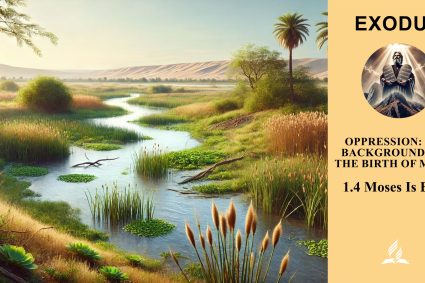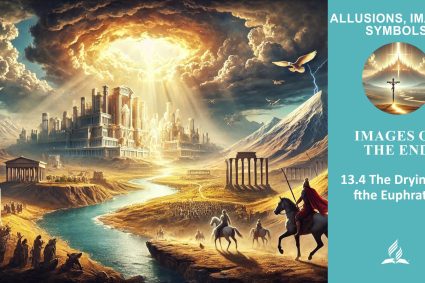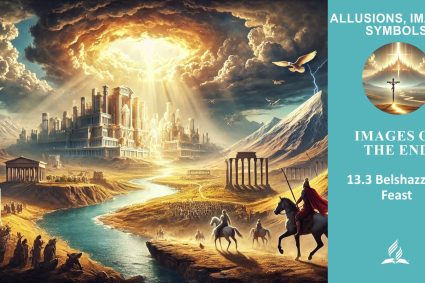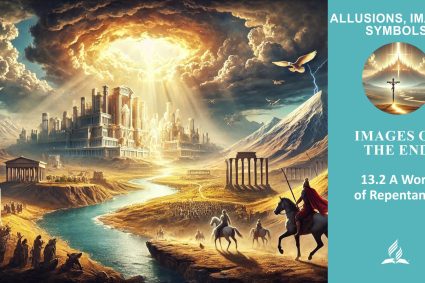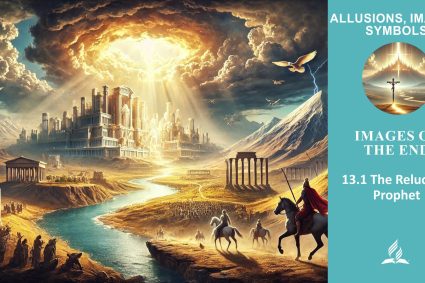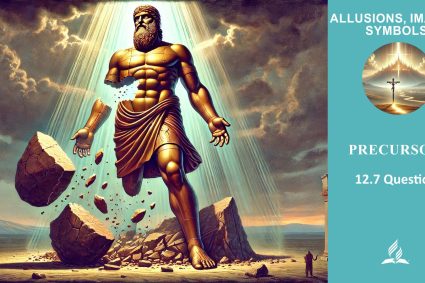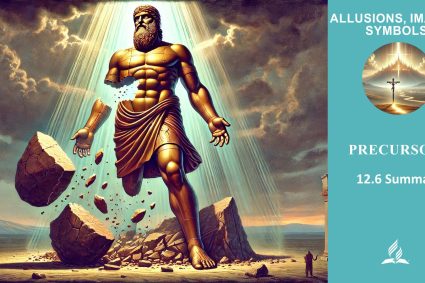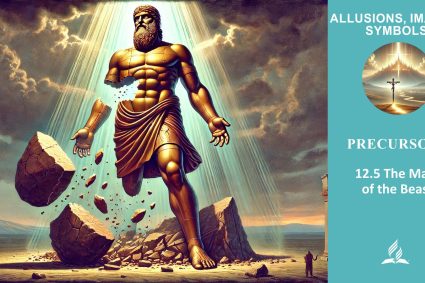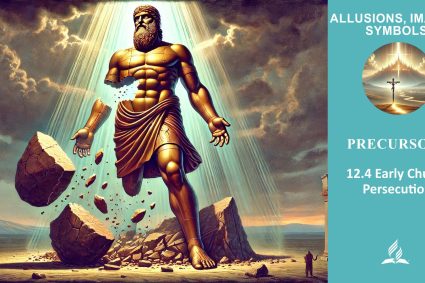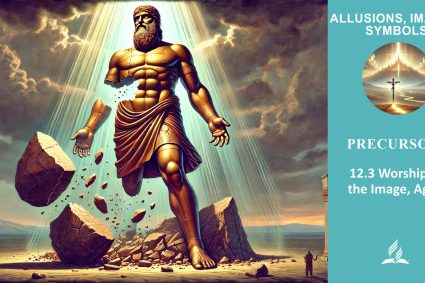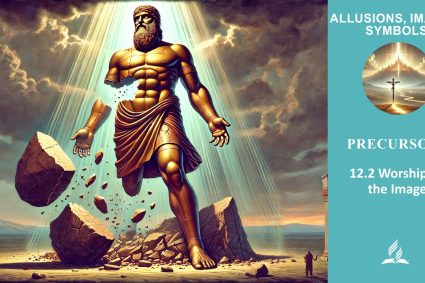


1.4 Love Finds a Way
Hope Through the Cross: God’s Unconditional Love Manifested
The story of Adam and Eve in the Garden of Eden is not just a tale of sin and fall, but also a story of God’s infinite love and hope for humanity. Despite Adam and Eve’s disobedience and the resulting consequences, God shows His mercy and love by giving a promise of redemption.
The promise in Genesis 3:15 is a shining example of God’s foresightful love and care for us. It is a promise that offers hope and comfort in times of darkness and despair. Even though Adam and Eve may not have fully grasped the significance of this promise immediately, we can now, with the knowledge of the New Testament, recognize that this “seed of the woman” is Jesus Christ.
Jesus, who died on the cross for our sins, has achieved the ultimate victory over Satan, sin, and death. His sacrifice and resurrection are our assurance and hope for redemption, forgiveness, and eternal life. Through Jesus, the door that Adam and Eve opened through their sin is closed, and the relationship between God and humanity is restored.
This wonderful promise is a living testament to the power and extent of God’s love for us. It reminds us that even amidst sin, suffering, and despair, God’s love finds a way to bring hope, healing, and salvation. It also challenges us to be witnesses of this love in our own lives by carrying God’s love into the world and telling others about the hope and peace that only Jesus Christ can offer.
Read Hebrews 2:9; Galatians 3:13, and 2 Corinthians 5:21. What do these verses tell us about the immensity of Christ’s sacrifice on the cross?
These verses reveal the immensity of Christ’s sacrifice on the cross:
-
Hebrews 2:9 emphasizes that Jesus, though He was God Himself, humbled Himself and took on death, so that by God’s grace, He might taste death for everyone. This demonstrates the magnitude of His sacrifice and His deep love for us, being willing to suffer for us to lead us to glory.
-
Galatians 3:13 illustrates that Christ redeemed us from the curse of the law by becoming a curse for us. This highlights Jesus’ willingness to give everything for us, so that we may be freed from the burden of sin.
-
2 Corinthians 5:21 shows that Jesus, although He was sinless, was made sin for us, so that in Him we might become the righteousness of God. This emphasizes the exchange that took place at the cross: Jesus took on our sin so that we might receive His righteousness.
In summary, these verses show that Christ’s sacrifice on the cross is of unspeakable significance and magnitude. Jesus, the Son of God, came into the world, humbled Himself, suffered, and died on the cross to redeem us from sin and open the way to salvation and eternal communion with God. His love and willingness to sacrifice are immeasurable, offering us hope, comfort, and security in our relationship with God. If we ever wonder whether God truly loves us, we can look to the cross and know with certainty: Yes, He does, and His sacrifice is the ultimate proof of His love for us.
How did Christ respond to Satan’s accusations on the cross? What did His death accomplish in the context of the great struggle between good and evil?
Christ on the cross responded to Satan’s accusations in several significant ways:
-
Perfect Obedience: Christ lived a life of perfect obedience to the Father’s will. Even when He was on the cross, He remained faithful and obedient unto death. This refutes Satan’s accusations that humans cannot be obedient to God.
-
Love and Forgiveness: While hanging on the cross, Jesus prayed for those who crucified Him, demonstrating His boundless love and willingness to forgive. This contrasts with Satan’s accusations and the nature of evil, which aim for hatred and separation.
-
Sacrifice for Sin: Through His death on the cross, Jesus took upon Himself the penalty for sin, freeing humanity from the power of sin and death. Thus, Christ’s sacrifice on the cross invalidated Satan’s accusation based on our guilt.
In terms of the great struggle between good and evil, Christ’s death on the cross accomplished the following:
-
Victory over the Forces of Darkness: Through His death and resurrection, Christ defeated the powers of darkness and won victory over Satan, sin, and death (Colossians 2:15).
-
Redemption and Reconciliation: Christ’s death on the cross paved the way for the redemption of humanity. He removed the barrier of sin between God and people, offering reconciliation and eternal life to all who believe in Him.
-
Establishment of the New Covenant: With His death, Jesus established a new covenant between God and people, based on grace, forgiveness, and eternal life (Hebrews 9:15).
-
Opening Access to God: Christ’s death enabled us to have direct access to God. Through Him, we can now approach the throne of grace and seek help and mercy (Hebrews 4:16).
In summary, Christ’s death on the cross marked a decisive turning point in the great struggle between good and evil. He achieved victory over the powers of darkness, nullified Satan’s accusation, and opened the way to redemption, reconciliation, and eternal communion with God.

The connection between Christ’s sacrifice on the cross and our daily lives and faith is profound and shaping. Here are some key aspects that illustrate this connection:
-
Personal Redemption and Hope
Christ’s sacrifice on the cross offers us personal redemption from sin, guilt, and separation from God. In our daily lives, when faced with temptations, worries, fears, or guilt, we can find comfort and hope in faith in the cross. It reminds us that we can be loved, forgiven, and renewed, regardless of our mistakes and weaknesses.
-
Community and Love for Neighbor
Jesus’ unconditional love and willingness to sacrifice challenge us to show this love in our relationships with others. In daily life, this means practicing compassion, forgiveness, and mercy towards our fellow human beings, even when it is difficult. Christ’s sacrifice encourages us to build bridges, resolve conflicts, and bring hope and healing to others.
-
Meaning and Purpose
In a world often marked by uncertainty, suffering, and confusion, the cross provides a firm foundation for our faith and a clear perspective on the purpose of our lives. It reminds us that despite the challenges we face, there is a greater goal and eternal hope.
-
Transformation and Growth
Faith in the cross has the power to transform and shape us. It challenges us to break free from selfish tendencies and strive for a life characterized by love, humility, and devotion. Each day offers the opportunity for spiritual renewal and growth in following Christ.
-
Responsibility and Witness
As Christians, we are called to carry the light and love of Christ into the world. The cross reminds us of our responsibility to be salt and light in our surroundings, proclaiming God’s love, standing up for justice, and striving for peace.
In conclusion, Christ’s sacrifice on the cross shows that faith is not just a private matter but has a direct impact on our daily lives, relationships, and role in the world. It challenges us to go deeper, love more, and always embody the hope and truth of the Gospel in our lives.

God’s unconditional love, manifested through Christ’s sacrifice on the cross, reminds us that love always finds a way to bring hope and healing amidst sin and despair, challenging us to reflect this love in our lives and in the world.
(Visited 21 times, 1 visits today)




